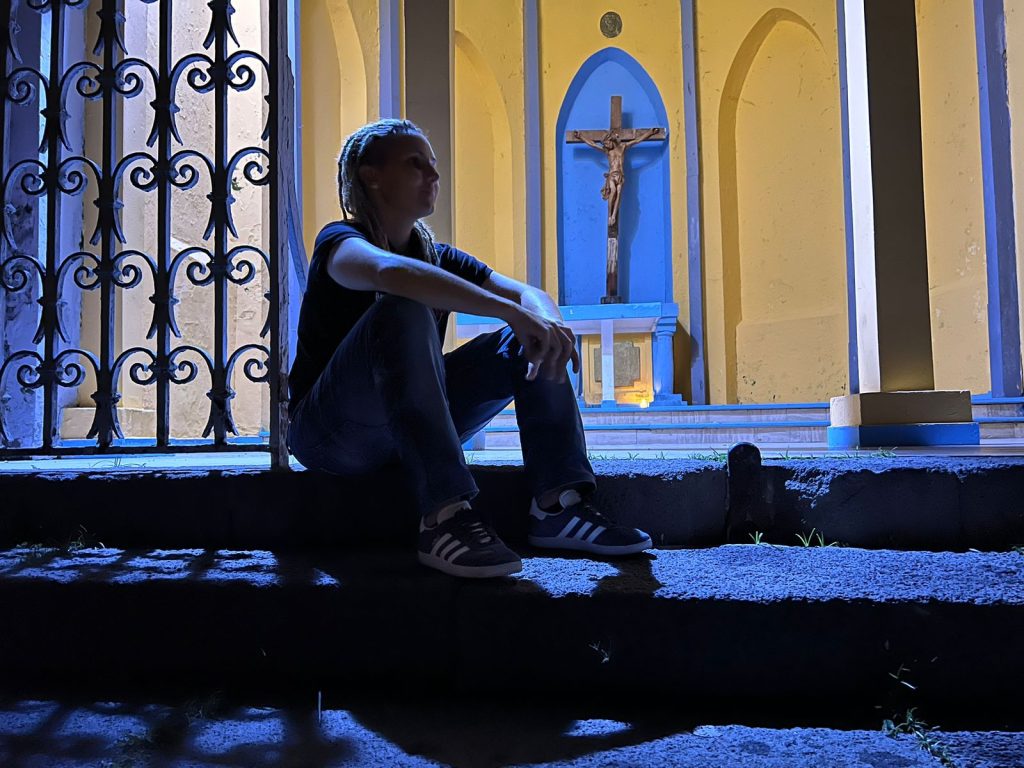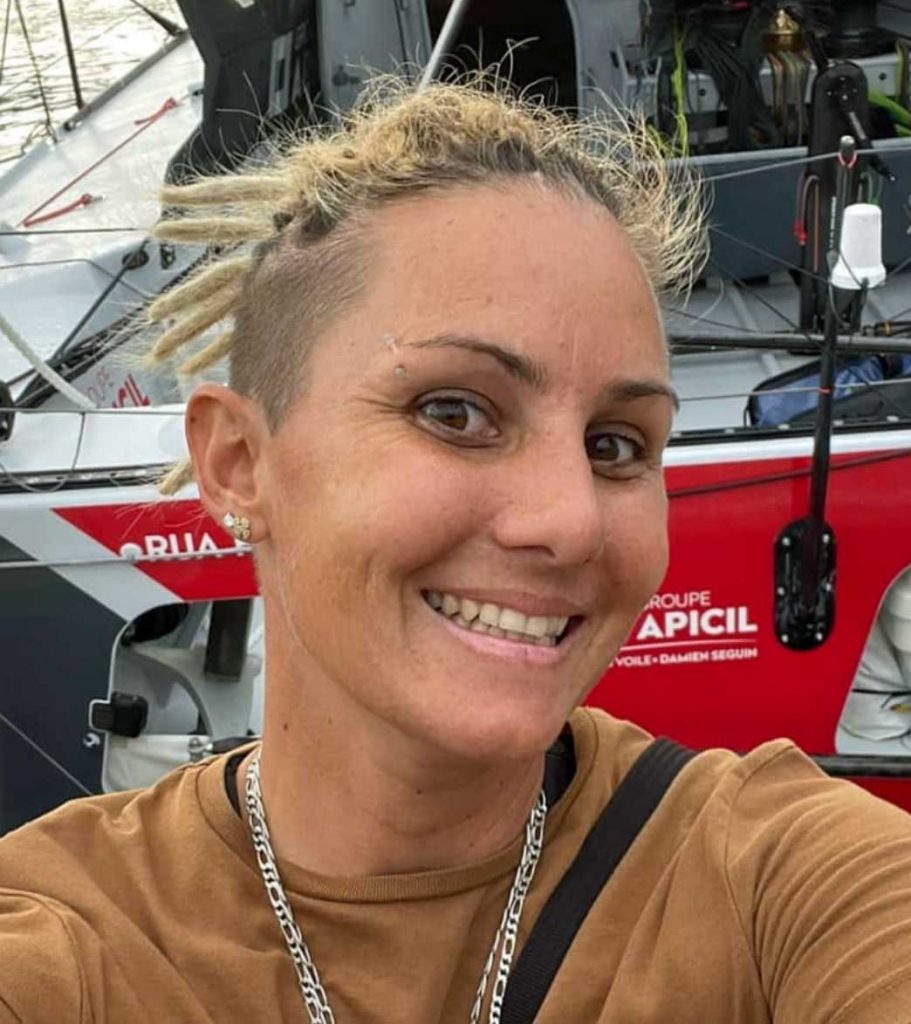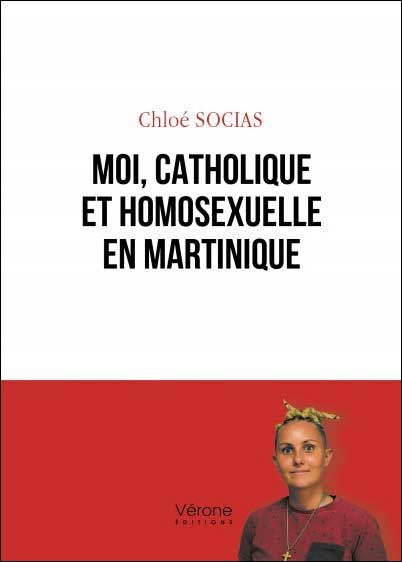Martinique : Christian lesbian finds growing acceptance
Moïse Manoël-Florisse, is an African-Caribbean online journalist keeping an eye…
‘It’s by staying within the Church that you … change perceptions and mentalities’

The presence of homosexuals within the Catholic Church in Martinique remains a subject of debate, both among church authorities and the local LGBT+ community.
It’s a topic that Chloé Socias knows well. In November 2022, she published a book entitled “Moi, catholique et homosexuelle en Martinique” (Me, a Catholic and homosexual in Martinique), about her journey of faith and spirituality, which brought female homosexuality into the open in the social and anthropological environment of the West Indies.
Here she discusses the tense relationship between the Catholic Church and the LGBTQ community:
Chloé Socias: For a very long time, being openly a Christian lesbian was like walking on eggshells. Today things have changed a lot. Four years ago, I could be the subject of criticism and gossipy backbiting within my parish. That’s no longer the case at all, because I’ve asserted myself without denying who I am. I’ve made my place instead of abandoning my faith.

In that sense, I often think that between the Catholic Church and the LGBT+ community, the blame is shared on both sides.
On the one hand, for a long time, the Church has totally legitimised the unacceptable homophobic behaviour of some people, while on the other, LGBT+ people who may or may not have experienced rejection by religious people use this as a reason to abandon their faith. I think that’s a shame, because faith and a relationship with God, with one’s creator, are deeply personal and intimate and have nothing to do with the way other people look at you.
But the problem goes deeper than that, because I often observe that even young heterosexuals sometimes feel rejected by the Church, because of what people will say, because of what people wear, or because of differences in musical tastes between the generations that lead to misunderstandings.
In this context, as a Christian lesbian, I’ve taken precisely the opposite gamble. I think that it’s by staying within the Church that you get the Church moving and change perceptions and mentalities. At the beginning, some people in my parish saw me only as a young tomboy, today I’m appreciated for the social work I do with young people.

Afterwards, my journey and my path were made possible by meeting Father Gaétan Présent, a young priest from the island. For a few years, he was in charge of youth ministry in other parishes on the island. At their request, he answered questions about faith and homosexuality. That brought us a lot closer together.
However, even parish priests in the secrecy of confession don’t always know what to say to their faithful, even though they are all confronted with it. That’s why I was surprised at how little interest there was in my book among the local church authorities.
In the end, before publishing the book, I sent the manuscript to the bishop and I know that a few parish priests read it. On the whole the people who bought the book did so more by word of mouth, because there was no communication plan for the publication on the part of the publishing house. What’s more, my book, which is essentially about Martinique, is very difficult to get hold of in the island’s bookshops.
In the local press, I was interviewed by Radio Caraïbes Internationale, the main radio station in the West Indies, but for the rest, relative anonymity surrounded the release of my book. I was half surprised by this, given its societal tone. In fact, at the same time as we are witnessing a real acceptance of female homosexuality among the younger generation in Martinique, there is a relative indifference that is emerging and growing, and that’s all to the good. However, the same cannot yet be said for male homosexuality.
Translated from the French-language website Stop Homophobie.`
Related articles in the Caribbean :
- Lesbian activist: It’s time for LGBT people to pay more attention to faith (December 08, 2023, 76crimes.com)
-
Haiti: ‘My transgender mother is a wonderful woman!’ (June 23, 2023, 76crimes.com)
-
Confessions of an Afro-Caribbean trans Christian grandmother (April 09, 2023, 76crimes.com)
-
Jamaica: Lesbian minister in training reaches out to anti-LGBTQ Christians (August 28, 2022, 76crimes.com)
- Interfaith activists rebut Guadeloupe claim that homosexuality is an illness (April 12, 2022, 76crimes.com)
-
Jamaican LGBTQ activist tells of sexual and spiritual awakenings (January 24, 2022, 76crimes.com)
-
In a nation wracked by violence, Kay Trans Ayiti welcomes trans Haitians (February 09, 2022, 76crimes.com)




Nigerian online influencer condemns anti-LGBT violence